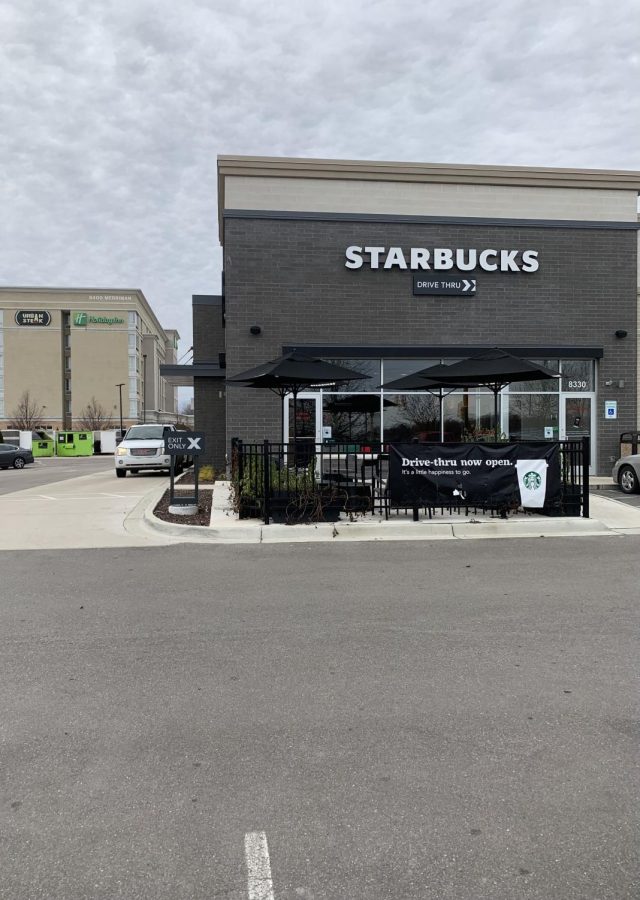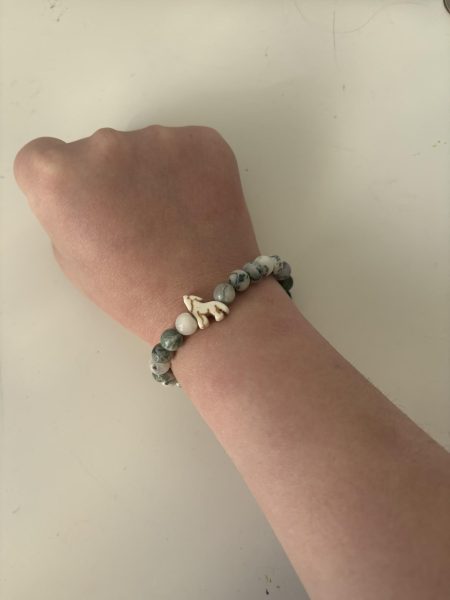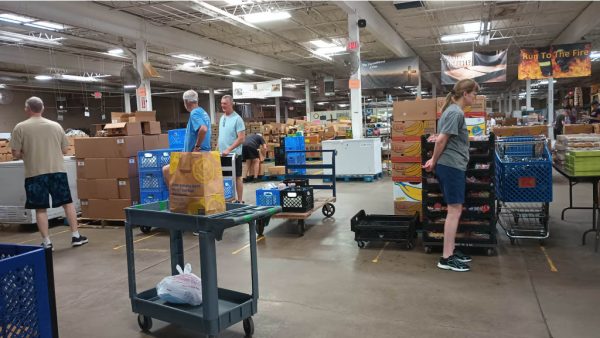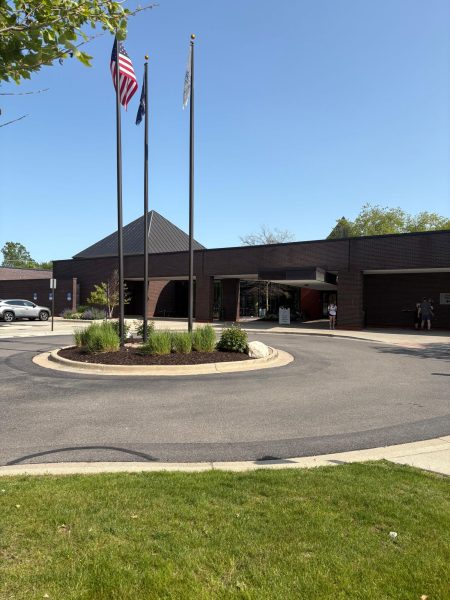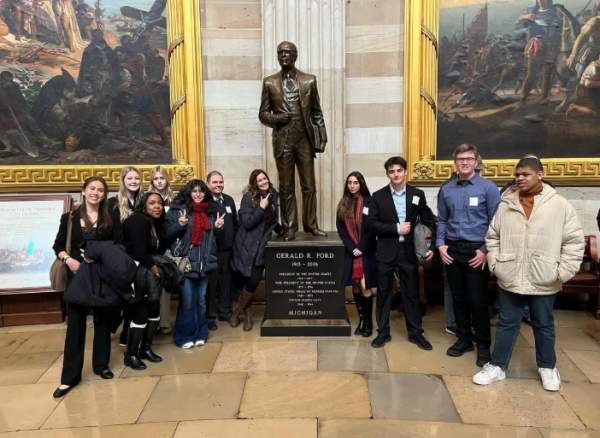COVID-19 pandemic causes labor shortage, makes stores close early
Customers in a car wait in the drive-through line as their order is prepared at the Starbucks on Merriman Road in Romulus on a Sunday afternoon.
It’s been another long day for the employees at the Starbucks on Merriman road in Romulus, Michigan. The doors are locked and some of the lights in the cafe are turned off, signaling the 7 p.m. close to those outside. Coffee spills litter the counter and straw wrappers are scattered across the floor. Now, all that’s left to do is the chock-full list of tasks and cleaning that wasn’t done during the day.
Typically, the store would close at 9 p.m., however, the nationwide labor shortage has other plans for this Starbucks. The COVID-19 pandemic was what sparked the beginning of the labor shortage, but it’s still on the rise, with many Americans not currently working.
The labor shortage is making impacts upon customers expecting the same level of service. According to Paul Davidson at USA Today, “That means interminable waits for a restaurant table, snaking lines at store cash registers and monthslong delays for home renovations could be partly alleviated in coming months but are likely to stick around in some form for the longer term.” Experts aren’t even certain the COVID pandemic will ever go away.
Auralyn Method, the store manager at the Starbucks on Merriman Road, is a single mother with three children. “Not working is not an option for me. I enjoy my job, but if I had a choice to not work in this environment during a pandemic, I would,” said Method.
With COVID-19, there’s been a lot of people on unemployment, mostly those on it have been laid off. However, many people have seen that they are being paid more now that they aren’t working and would be paid less if they were working.“I think that people have realized how much they can do without. As opposed to working in an essential industry that is frequently not being paid a livable wage and having to deal with the public during an epidemic, both the regular everyday problems and the debate about mask wearing,” stated Method.
Method added that the labor shortage will end when the mask mandate is lifted everywhere; she also said the world of politics is going to make it very difficult for that to happen.
Besides the debate about mask-wearing, closing early doesn’t just affect the customers, it also affects the baristas and shift supervisors on the floor. They’re left with more work during the evening shifts due to the lack of staff on the floor earlier in the day, making both supervisors and baristas’ jobs harder.
Devin Straw, who has been working as a shift supervisor for a few months, mentioned that her job has become harder with the labor shortage. “I don’t remember the exact date, but we only had two baristas and me as the shift [supervisor]. We were swamped with cafes, mobiles and drive-thru orders and no one would come in to help. I asked the temporary manager if we could shut down mobiles or cafe and all I got was ‘No, you guys can handle it,’” Straw said. “My team was so stressed and about to cry, and I couldn’t give them their breaks. I ended up closing the cafe myself despite being told ‘no,’ because we didn’t have the right amount of staff to correctly handle the situation. I was a new shift too, so I was still inexperienced and wasn’t used to running the shifts.”
Straw commented that she thinks that herself and others are not paid enough for the amount of work that they do. She also remarked that people are not desperate enough for a job when unemployment can pay them better than a job will. And, according to David Leonhart, a journalist at the Washington Post “Americans are flush with cash” from stimulus checks which also drives them not to want to work.
Alaizah Gallmore, a shift supervisor and barista at the Starbucks, agrees with Straw. Gallmore said that she believes the labor shortage shouldn’t even be happening, and that it wouldn’t be happening if staff was paid for the amount of work completed.
Not only are staff not paid correctly, according to both Straw and Gallmore, sometimes their days may be adjusted because the store needs more people on the floor in order for it to function.
“Personally, it’s affected me because I have to come into work earlier. Sometimes when I already have my day set up and planned out,” Gallmore responded.
The labor shortage in itself is a fight for better pay. Straw reiterated, “We work like, really hard, but I feel like the amount that we are paid, while it is better than most places, it still isn’t enough for exactly how much we do.”
Your donation will support the student journalists of Salem High School - MI. Your contribution will allow us to purchase equipment and cover our annual website hosting costs.


